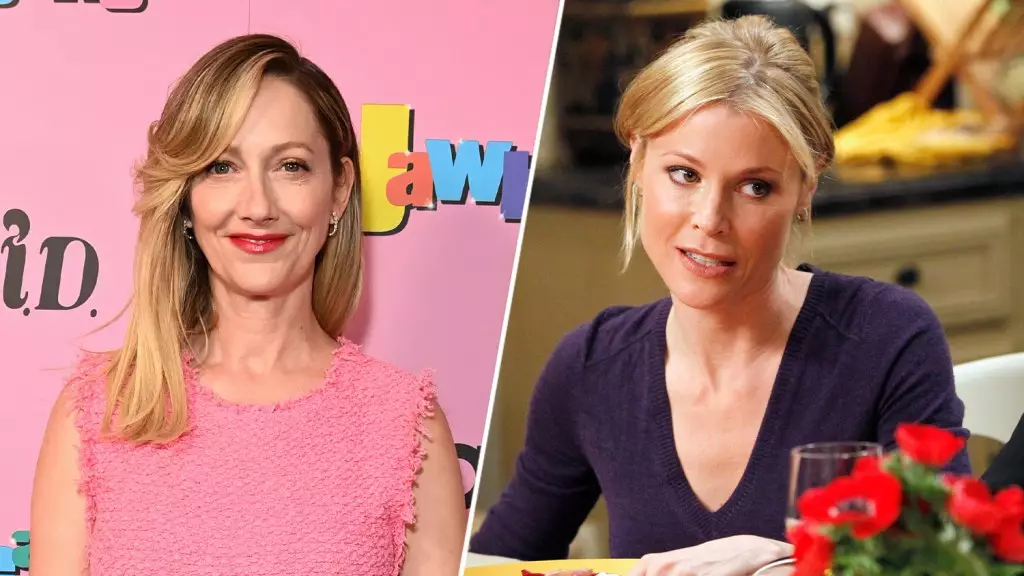In the entertainment world, decisions can have significant implications on an actor’s career trajectory. One notable instance is Judy Greer’s contemplation of her choice to abstain from auditioning for the iconically popular television series, *Modern Family*. Over 15 years since the hit sitcom first graced screens, Greer has openly discussed her reasoning during an engaging conversation with Jesse Tyler Ferguson on the podcast, *Dinner’s On Me*. This moment represents not just a personal reflection but also an opportunity to explore the inherent conflicts actors face when navigating roles, especially in family-centric narratives.
At the time she was approached for the role of Claire Dunphy—a character that came to be portrayed by Julie Bowen—Greer admitted that motherhood wasn’t on her mind. Her admission, “I didn’t even want kids” resonates deeply, highlighting the clash between professional obligations and personal desires. For many actors, particularly women, there exists a relentless scrutiny regarding roles that encompass familial portrayals, often leading to a pigeonholing effect.
Greer’s remarks underscore a broader concern in the industry: how roles can define an actor’s career. At a point when Greer was beginning to land roles as mothers onscreen, the very idea of playing a character with three children was daunting. “In a movie, I would have a kid. And then there was this opportunity to audition where I would have three kids, one of them in high school,” she expressed. Such revelations provide a glimpse into the pressures that accompany the choice of taking on any character that signifies a longstanding commitment, especially on television, where actors risk being typecast in certain roles.
When discussing the possible success of *Modern Family*, Greer pointed to the inherent difference between television and films. While films often come and go, leaving a fleeting impression, successful TV series can anchor an actor’s identity in the public eye for years. This thought, particularly her concern about becoming “America’s mom,” reflects not only Greer’s apprehension but also an understanding of the industry’s long-lasting impact on personal branding.
The conception of success in Hollywood can be nebulous. It often implicates a series of roles that come with certain expectations. Greer’s rejection of the role stemmed from a desire for diverse experiences, including travel and various roles across different stories. Her apprehension about limiting herself through a single character’s lens is one that many actors can relate to, especially when considering long-term career aspirations.
Bowen, who ultimately took on the role of Claire Dunphy, also shared her journey through the audition process, recounting her initial anxiety and self-doubt. “I thought I bombed because I can’t tell a joke, I’m not funny,” she admitted during her own podcast appearance. This sentiment echoes the vulnerability and unpredictability that accompanies the auditioning process. Bowen’s experience emphasizes the competitive nature of the industry, where performers often have to weigh their options against personal circumstances.
Given the impending pressures of financial stability—“like you need the job that’s going to pay the bills”—Bowen was making choices heavily influenced by practicality rather than artistic recognition alone. The pressure to secure roles that not only align with one’s talent but can also provide financial security is an ongoing paradox that performers navigate daily.
As *Modern Family* educated its audience about diversity, relationships, and intricacies of family dynamics for 11 successful seasons, its impact on pop culture cannot be overstated. The show’s legacy, including its 22 Emmy Awards, signifies a milestone in sitcom evolution. However, Greer’s introspection serves as a powerful reminder that success in Hollywood often involves complex decision-making processes and that every actor’s path is uniquely their own.
In the end, Judy Greer’s candor invites aspiring actors to recognize the significance of their choices in shaping long-term careers. As they navigate a challenging landscape laden with expectations, they are reminded that the capabilities of their craft should not be limited by preconceived roles. Each decision molds their narrative, much like how the characters they portray influence the cultural zeitgeist of their time.

